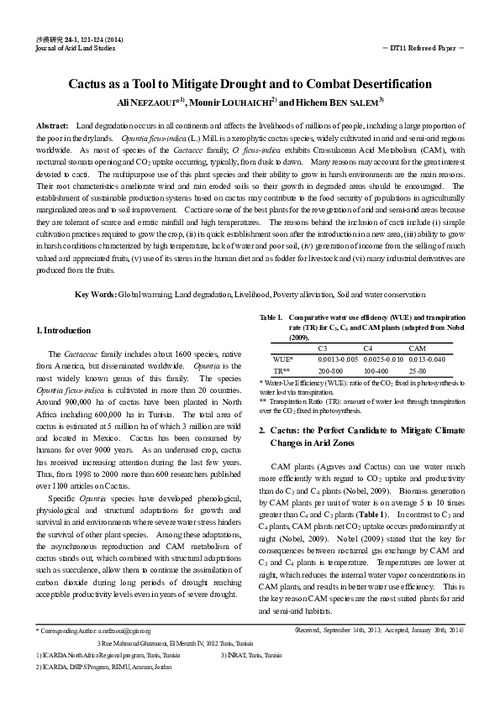Land degradation occurs in all continents and affects the livelihoods of millions of people, including a large proportion of
the poor in the drylands. Opuntiaficus-indica (L.) Mill. is a xerophytic cactus species, widely cultivated in arid and semi-arid regions
worldwide. As most of…
Since the 1930s there has been worldwide concern about the effects and impacts of land degradation. After the problems experienced in the Dust Bowl in the USA, much attention was paid to soil and water conservation in both developed and developing countries. Initially Governments stimulated the…
Remote sensing of vegetation by using active microwave sensors is important for the management of land and water resources. Microwave radiation at X-band penetrates only the upper part of the canopy; thus, radar backscattering comes mainly from the top vegetation layer, making the scattering…
The impact of land use changes on sustainable development is of increasing interest in many regions of the world. This study aimed to test the transferability of the Framework for Participatory Impact Assessment (FoPIA), which was originally developed in the European context, to developing…
This study aimed to evaluate the impact of climate change on the geographical distribution of selected native species from two areas from West Asia and North Africa. Three species representing two genera were selected for assessment of their vulnerability to climate change. The first species was…
In this paper, existing wastewater treatment practices in 7 African countries, i.e. Algeria, Burkina Faso, Egypt, Ghana, Morocco, Senegal and Tunisia, are reported. Data were collected by questioning wastewater treatment plants managers as well as treated wastewater users in 2012. This study…
The Collaborative Partnership on Mediterranean Forests (CPMF) has the purpose to improve implementation of policies for sustainable management of forests and environmental services provided by forest ecosystems in the context of climate change.
Rangelands and forests together account for a major chunk of land in the Near East region. Characterized by semi-arid and arid conditions use of these land faces very severe constraints, which have been accentuated on account of climate change related extreme weather events. Larger changes,…
For many centuries, the people of the Near East and North Africa (NENA) Region were able to cope, and even flourish, under conditions of water scarcity. However, with decades of relentless high rate of population growth, rapid urbanization, and uncharacteristically excessive consumption patterns…
The joint International Monetary
Fund/World Bank mission that visited Tunis from January 16 -
31 and March 27 - 31, 2006 as part of the Financial Sector
Assessment Program (FSAP) update for Tunisia carried out a
detailed…
This summary describes the work of the LADA (Land Degradation and Assessment in Dry Areas) project that identifies and describes geographical areas suffering from land degradation in the governorates of Tunisia. Through a comparative study of these areas, it identifies the failures and successes…
This brief is intended to inform government decision makers, agencies and specialist groups involved in rural development and revenue generation activities for communities and women







